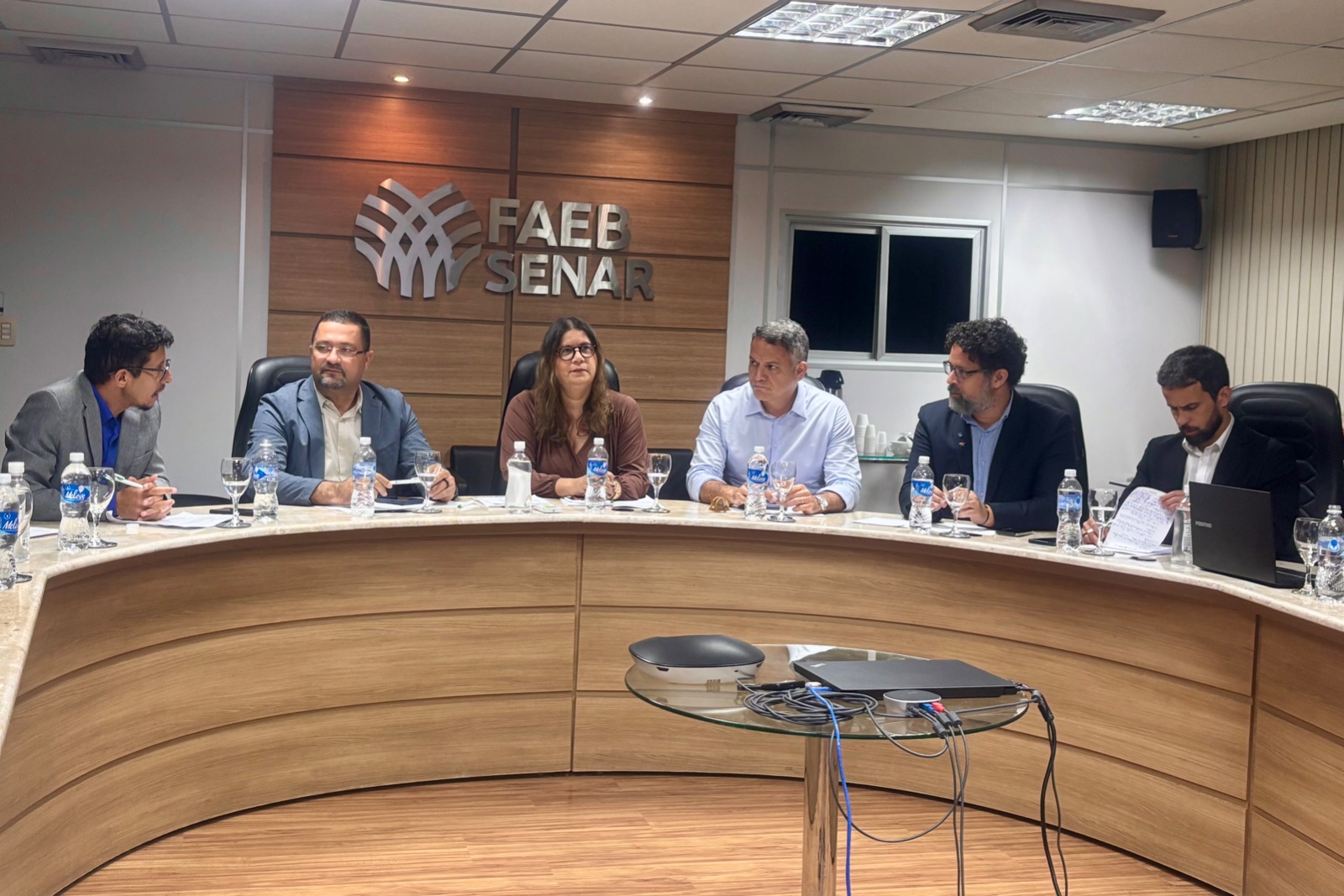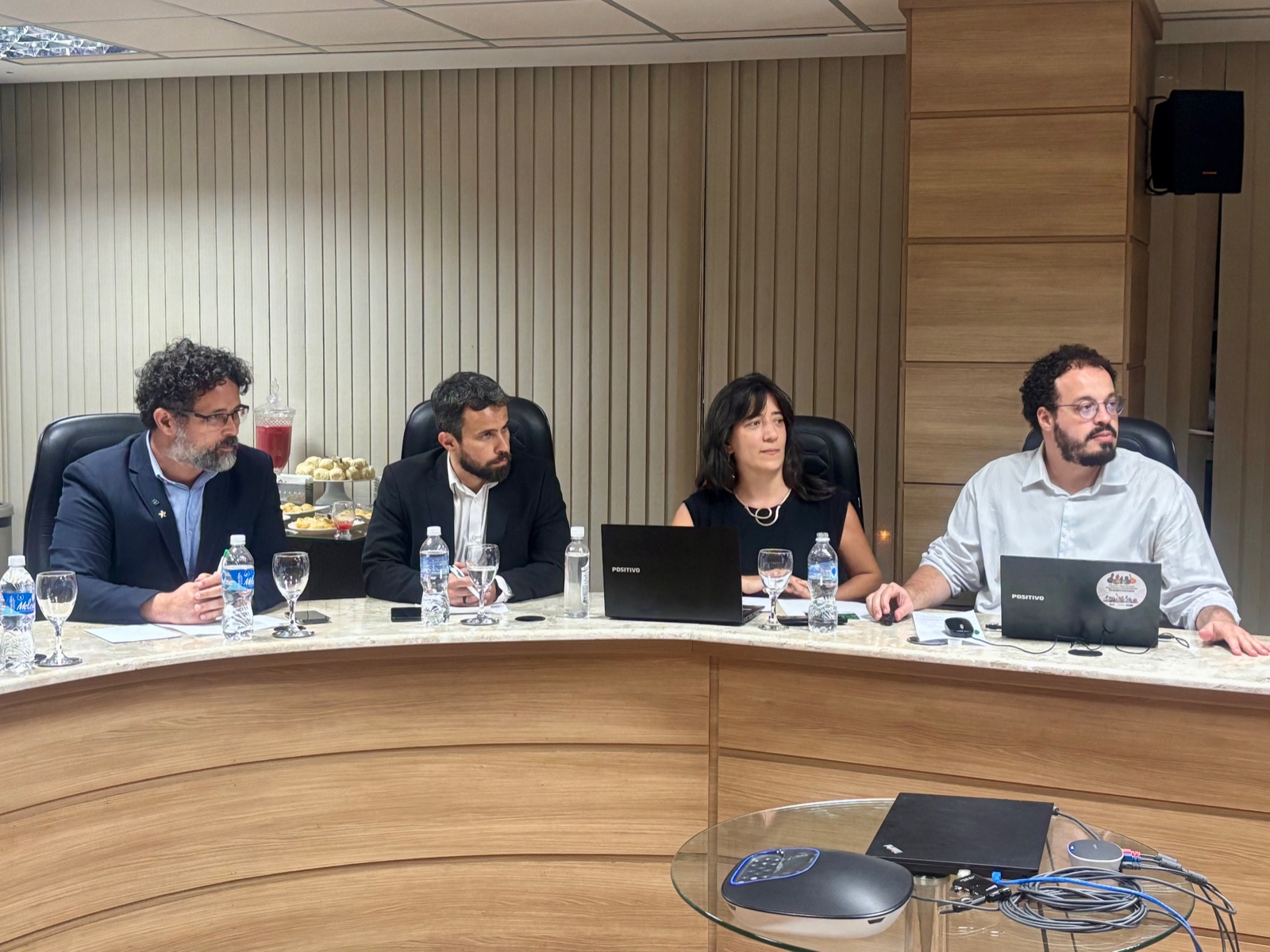CENSUS OF AGRICULTURE
Launched in Bahia and at COP30, pre-test paves the way to 12th Agricultural, Forestry and Aquaculture Census
November 19, 2025 12h15 PM | Last Updated: November 24, 2025 02h19 PM

Presented last Monday (17) at events held in Salvador (BA) and at COP30, in Belém (PA), the first pre-test of the 12th Agricultural, Forestry and Aquaculture Census marks a fundamental stage for this important survey, which will, in an unprecedented way, contemplate the production of traditional peoples and communities throughout the national territory.
With the motto “Together we will harvest the biggest harvest of data in Brazil”, the 12th Agricultural, Forestry and Aquaculture Census should visit around 5 million agricultural establishments, in the country's 5,571 municipalities, generate approximately 35 thousand temporary jobs and update the detailed portrait of essential activities, which produce food, wealth, work and income.
This long-awaited portrait begins to be tested in the field between December 1st and 12th, in four states: Bahia, Minas Gerais, Rio de Janeiro and Maranhão.
The main objective of this first pre-test is to evaluate aspects related to information collection: logistics, data collection methodology and application, questionnaire application time and its understanding by informants.
During the test, 45 IBGE professionals will take on the role of enumerators in six municipalities: Bacabal/MA, Juazeiro and Sobradinho/BA, Grão Mogol and Alfenas/MG and Nova Friburgo/RJ, chosen because they represent diversity of biomes, production patterns and land structure, in addition to the presence of traditional peoples and communities. Nearly 1,200 agricultural establishments should be visited.
A second pre-test stage and the Experimental Census of Agriculture are scheduled for 2026.
Census of Agriculture for all
“The Census of Agriculture is a unique opportunity to portray the full diversity of Brazilian rural reality. It is a Census for everyone,” summarized the IBGE´s Director of Surveys, Gustavo Junger, at the opening of the pre-test presentation event, at the headquarters of FAEB (Federation of Agriculture and Livestock of Bahia), in Salvador.
Present at the event were the Secretary of Rural Development of Bahia, Osni Cardoso de Araújo; the state's Secretary of Agriculture, Livestock, Irrigation, Fishing and Aquaculture, Pablo Barrozo; the Superintendent of the SENAR system (National Rural Learning Service), Carine Magalhães; the Coordinator General of the IBGE´s Center for Information Documentation and Dissemination (CDDI), Daniel Castro; and the Superintendent of the IBGE in Bahia, André Urpia. Júnia Queiroga, representative of UNFPA (United Nations Population Fund) in Brazil, participated remotely as well.
The presentation of the pre-test details was carried out by Fernando Damasco, Coordinator General of Census Operations at the IBGE, and Juliana Queiroz, Technical Manager of the Census of Agriculture.
“We really believe in the importance of this portrait of agriculture, of quality and accurate information, for our decision-making,” stated the Superintendent of SENAR, Carine Magalhães. A unanimous opinion among those present.
“We will want to participate in all debates because, if this Census turns out as we believe, it will make public policies much easier,” said Secretary Osni Cardoso.
For Secretary Pablo Barrozo, “it is an immense joy to act as a partner with the IBGE in the construction of the next Census of Agriculture. We will be holding hands,” stated him.

In his speech, the Superintendent of IBGE in Bahia, André Urpia, gave a special greeting to the other superintendencies that will receive the first test of the 12th Agricultural, Forestry and Aquaculture Census and recalled that Bahia, in addition to having the largest number of agricultural establishments, also has the highest proportion of people living in rural areas, among the Brazilian states.
“It is an honor for UNFPA to be a partner in the first inclusion of traditional peoples and communities in an Census of Agriculture,” concluded Júnia Queiroga.
Data from the Census of Agriculture will support the National Plan for the Sustainable Development of Traditional Peoples and Communities
After the event in Salvador, the President of the IBGE, Marcio Pochmann, also presented the first pre-test of the Census of Agriculture in Belém, during the ceremony announcing the National Plan for the Sustainable Development of Traditional Peoples and Communities, which was part of the COP30 program.
Established through a presidential decree, the Plan is a set of goals and objectives that will guide the work of the federal government, states and municipalities with regard to these populations, for the next three years.
Among the Plan's initiatives is the production of official information on traditional peoples and communities, and the 12th Census of Agriculture will be a fundamental instrument to give visibility to these groups.
“Public policies are implemented based on the reality revealed by statistics. If the statistics do not show reality as it appears, it is obvious that there is a deviation, a bias in public policies, in not looking at the specificities,” stated Pochmann, remembering that the 2022 Population Census had already advanced in the portrait of traditional peoples and communities and other populations that were previously invisible.




















